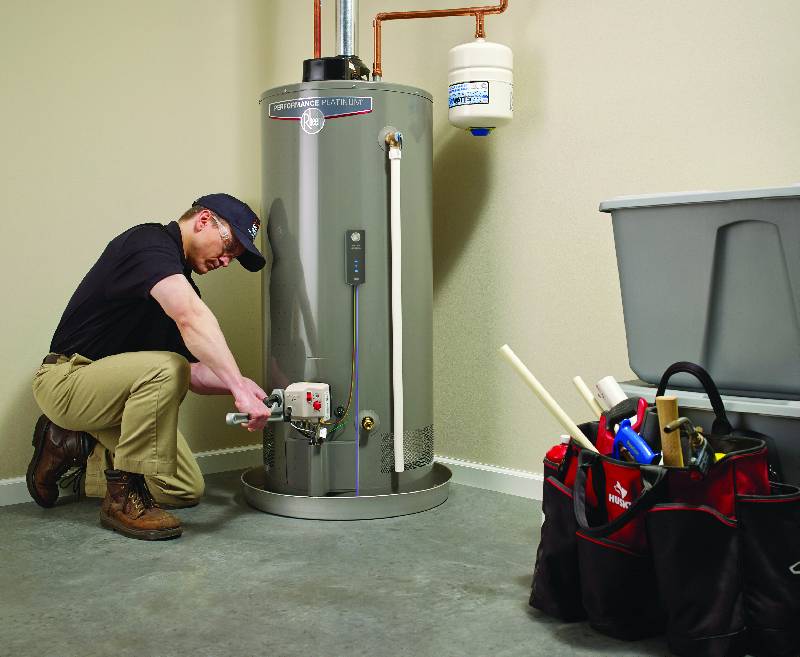General Water Heater Complications And Their
General Water Heater Complications And Their
Blog Article
We've uncovered this article on Common Problems with Your Home Water Heater below on the web and think it made perfect sense to write about it with you here.

Think of beginning your day without your routine hot shower. That already sets an inadequate tone for the rest of your day.
Every residence needs a trustworthy water heater, however only a few understand how to take care of one. One easy method to maintain your water heater in top shape is to look for mistakes frequently and fix them as quickly as they show up.
Bear in mind to turn off your water heater before smelling about for faults. These are the water heater faults you are probably to come across.
Water also warm or also cool
Every hot water heater has a thermostat that figures out just how hot the water gets. If the water entering into your home is as well warm regardless of setting a hassle-free optimum temperature level, your thermostat may be defective.
On the other hand, too cold water might be because of a stopped working thermostat, a busted circuit, or inappropriate gas circulation. For instance, if you utilize a gas water heater with a broken pilot burner, you would get cold water, even if the thermostat is in ideal condition. For electrical heating systems, a blown fuse may be the wrongdoer.
Not enough warm water
Water heaters been available in lots of dimensions, relying on your warm water demands. If you run out of warm water prior to everyone has had a bathroom, your hot water heater is also small for your family size. You ought to take into consideration mounting a bigger hot water heater tank or opting for a tankless water heater, which takes up much less room as well as is more durable.
Weird noises
There go to least five kinds of noises you can speak with a hot water heater, however the most common analysis is that it's time for the hot water heater to retire.
Firstly, you ought to recognize with the normal appears a water heater makes. An electric heating system may sound various from a gas-powered one.
Standing out or banging noises generally indicate there is a slab of sediment in your containers, as well as it's time to cleanse it out. On the other hand, whistling or hissing sounds may merely be your shutoffs letting some pressure off.
Water leakages
Leakages could originate from pipelines, water links, valves, or in the worst-case situation, the storage tank itself. With time, water will certainly corrode the storage tank, and also locate its escape. If this happens, you need to replace your water heater immediately.
However, before your change your entire tank, be sure that all pipelines remain in area and that each shutoff works flawlessly. If you still need help determining a leak, call your plumber.
Rust-colored water
Rust-colored water means among your water heater elements is worn away. Maybe the anode pole, or the storage tank itself. Your plumber will be able to recognize which it is.
Warm water
No matter how high you established the thermostat, you won't obtain any warm water out of a heating unit well past its prime. A water heater's performance may lower with time.
You will also obtain warm water if your pipes have a cross link. This suggests that when you switch on a faucet, warm water from the heater streams in along with normal, cold water. A cross link is easy to area. If your warm water taps still pursue closing the hot water heater valves, you have a cross connection.
Discoloured Water
Corrosion is a major source of dirty or discoloured water. Corrosion within the water storage tank or a stopping working anode rod might trigger this discolouration. The anode rod protects the container from rusting on the within as well as must be inspected annual. Without a rod or an appropriately working anode pole, the hot water promptly wears away inside the container. Get in touch with a specialist water heater service technician to establish if replacing the anode rod will certainly repair the problem; otherwise, replace your water heater.
Final thought
Preferably, your water heater can last ten years before you require a modification. However, after the 10-year mark, you might experience any of these mistakes much more routinely. At this moment, you need to add a brand-new water heater to your budget plan.
How To Troubleshoot 3 Common Water Heater Problems in Twin Cities
The Water Heater Is Leaking
A leaky cold water inlet valve A loose pipe fitting A leaky temperature and pressure relief valve A corroded anode rod A cracked tank Turn Off Your Water Heater:
Shut off your gas water heater by turning the gas valve on the unit to the “OFF” position. Shut off your electric water by switching its power off at your electrical panel. Look for a two-pole breaker labeled “water heater” and turn it to the “OFF” position. Move the ball valve connected to the water heater to be perpendicular to the piping at a 90° angle. Look for the Leak:
Depending on whether the water is coming from the tank's top or bottom, you’ll want to look for the leak in different locations.
If the leak comes from the top of the tank, carefully look for water escaping from the cold water inlet valve or loose pipe fittings. Rusted hot and cold water valves can have loose connections with the tank, with water leaking out of them.
https://mspplumbingheatingair.com/blog/how-to-troubleshoot-3-common-water-heater-problems
As a devoted reader on Water Heater Repair and Troubleshooting, I thought sharing that portion was smart. Please take the opportunity to promote this blog if you enjoyed it. We recognize the value of reading our article about Common Problems with Tank Water Heaters.
Prompt service? Call here. Report this page